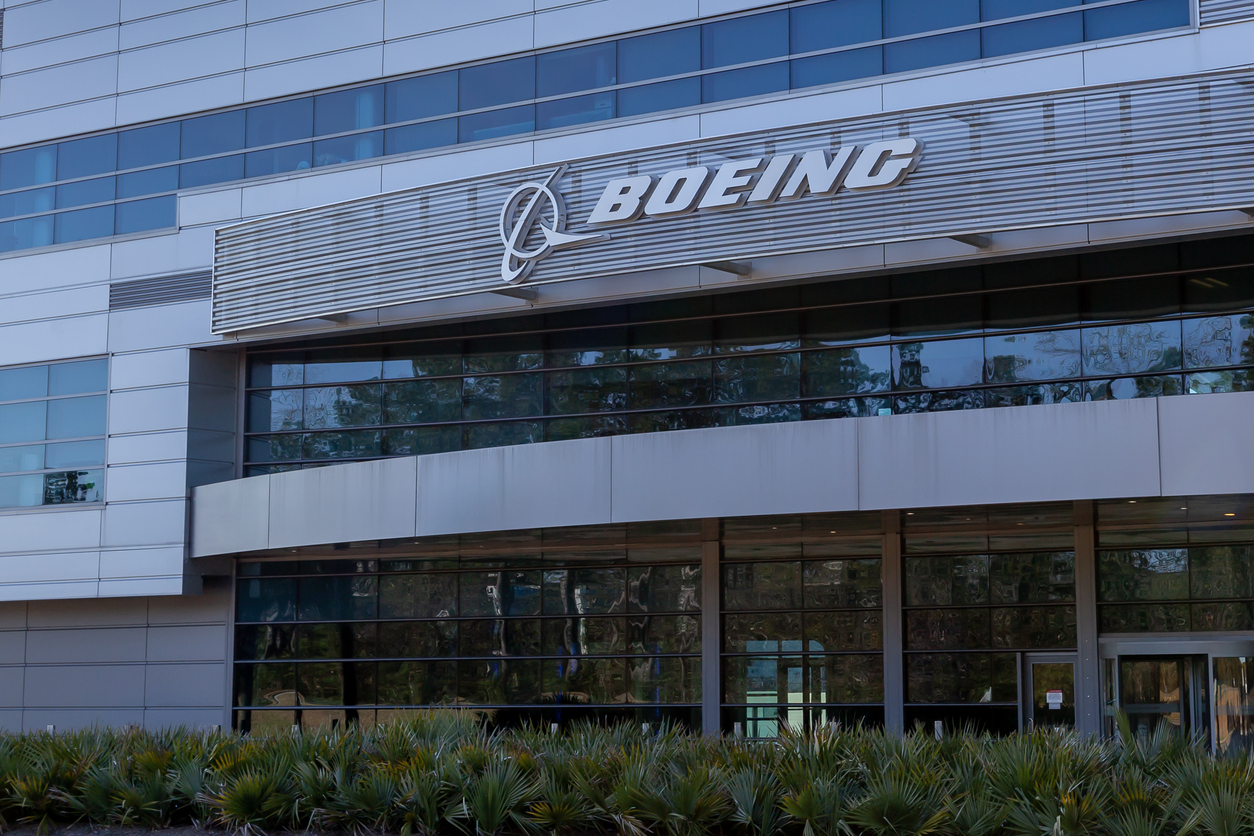Boeing CEO testifies about safety record, whistleblower retaliation before Congress
Plus, Stellantis recants remote work stance and Target rolls out an employee AI tool.

Greetings, comms pros! Let’s take a look at a few news stories from the past week and see what we can learn from them.
1. Boeing CEO admits to whistleblower retaliation, attempts to defend commitment to safety
After months of not-so-stellar news coverage over its safety record following multiple crashes in the past decade the door blowing off a plane earlier this year and reports that it retaliated against whistleblowers, CEO Dave Calhoun went to Washington earlier this week to answer some questions about the aerospace giant’s tumultuous recent times. While Calhoun did acknowledge and face the families of both victims of Boeing crashes and deceased whistleblowers, it didn’t come across as a master class in leadership comms.
According to CNN, Calhoun didn’t get a warm welcome when he walked into the room on Capitol Hill, with audience members criticizing his company’s safety issues. The senators charged with grilling him weren’t too friendly either — Senator Richard Blumenthal even called Boeing’s recent management changes “management musical chairs”.
“I would like to apologize on behalf of all of our Boeing associates spread throughout the world — past and present — for their losses,” Calhoun said to the assembled audience. One person responded, “You should be in jail.” The families of two Boeing crashes in Ethiopia and Indonesia also asked the Justice Department to levy a $24 billion fine for what they dubbed “the deadliest corporate crime in U.S. history.”
Additionally, Calhoun admitted that the company has retaliated against whistleblowers in the past, saying “I know it happens.”
Acknowledging your past wrongs is a good, and ultimately necessary thing when you’re the leader of an organization that’s in the spotlight for the wrong things. But it shouldn’t take a Congressional hearing to get leaders to show empathy and vulnerability. Sure, Calhoun is resigning at the end of the year, but his words need the backing of action. When specific recommendations and next steps are coming from the families of victims, those aren’t just recommendations to consider — but core actions being suggested by your most alienated stakeholder set. Turning a tragic, drawn-out crisis into an opportunity is the cornerstone of progress.
Going forward, Boeing needs to be decisive in its response to both those it employs and those it’s harmed. Practically, that means creating and publicizing pathways for the company to improve its standing, including improved employee reporting resources and stronger employee-manager relationships.
This also means acknowledging mistakes when they happen, engaging with employees who note safety concerns as opposed to burying the truth, and working with the families of victims. In the absence of these, Boeing’s reputation stands to be further eroded.
2. Automaker Stellantis calls employees back to worksites following commitment to remote work
Automaker Stellantis, once touted as a champion of remote work, seems to have pulled back its commitment to it.
“It’s impossible to engineer vehicles remotely,” said Ned Curic, who oversees Stellantis’ engineer and technology departments. “You have to have people together. You have to do design sessions, engineering sessions and the buildups together. It helps us accelerate a number of projects.”
The tone reversal is notable due to Stellantis’ commitment to remote work options as other car makers ordered non-assembly workers back to their desks. According to another report from Quartz, even CEO Carlos Tavares works about one week per month at his home in Portugal.
While policy reversals happen in the corporate world, explaining them thoroughly is key.
3. Target rolls out AI platform to help store employees, improve customer experience
When you’re shopping at Target, you’re probably more focused on avoiding impulse items—not thinking about artificial intelligence (AI). However, a new technology might change how employees and customers interact with their Target experiences.
According to a report from Axios, Target is rolling out its “Store Companion” chatbot, which will answer employee questions about processes and procedures within the store. “It is really about trying to empower and improve how our team members effectively work with our guests,” said Target chief information officer Brett Craig.
AI has a ton of promise and there’s been a ton of talk about it, but it’s interesting to see it rolled out in a way that’s meant to directly improve both the customer and employee experience. AI is a tool, and it’s only as effective as the people behind it. Talk to your people clearly about the scope of your AI initiatives and how they will impact them. Give them a chance to understand the tech at hand and get used to it. If you do these things, you’ll set yourself up for a great chance of symbiosis between employees and their machines.
4. How about some good news?
- A plastic bag upcharge in Colorado led to shoppers in the state using 1.5 billion less plastic bags.
- Students at Tennessee Tech created 3D-printed prosthetic arms for a 12-year-old drummer.
- A New York-based birdwatcher who endured a racist encounter that went viral turned his newfound fame into an Emmy Award-winning program.
- Ragan Training is great for communications pros to find inspiration and resources.
- You should be rewarded for your work. Find out how to earn an award here!
Have a great weekend comms all-stars!
Sean Devlin is an editor at Ragan Communications. In his spare time he enjoys Philly sports, a good pint and ’90s trivia night.







